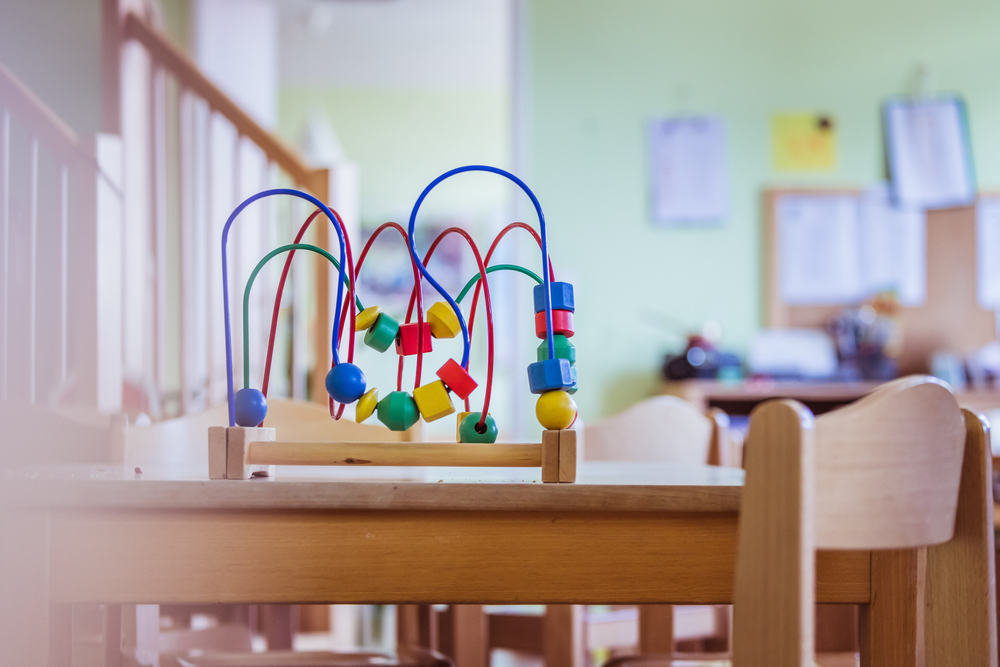Logical Reasoning Extra Challenge Worksheets for 8-Year-Olds
4 filtered results
-
From - To
Discover the exciting world of Logical Reasoning Extra Challenge Worksheets designed specifically for 8-year-olds! These engaging worksheets provide a perfect blend of fun and education, helping children develop critical thinking skills while tackling unique puzzles and problems. Each worksheet is crafted to challenge young minds, encouraging them to analyze, infer, and apply logic in various contexts. Ideal for at-home learning or classroom settings, these activities stimulate curiosity and problem-solving abilities, setting the foundation for academic success. Make learning enjoyable and inspirational with these extra challenges that inspire creativity and confidence in young learners! Explore our collection today!
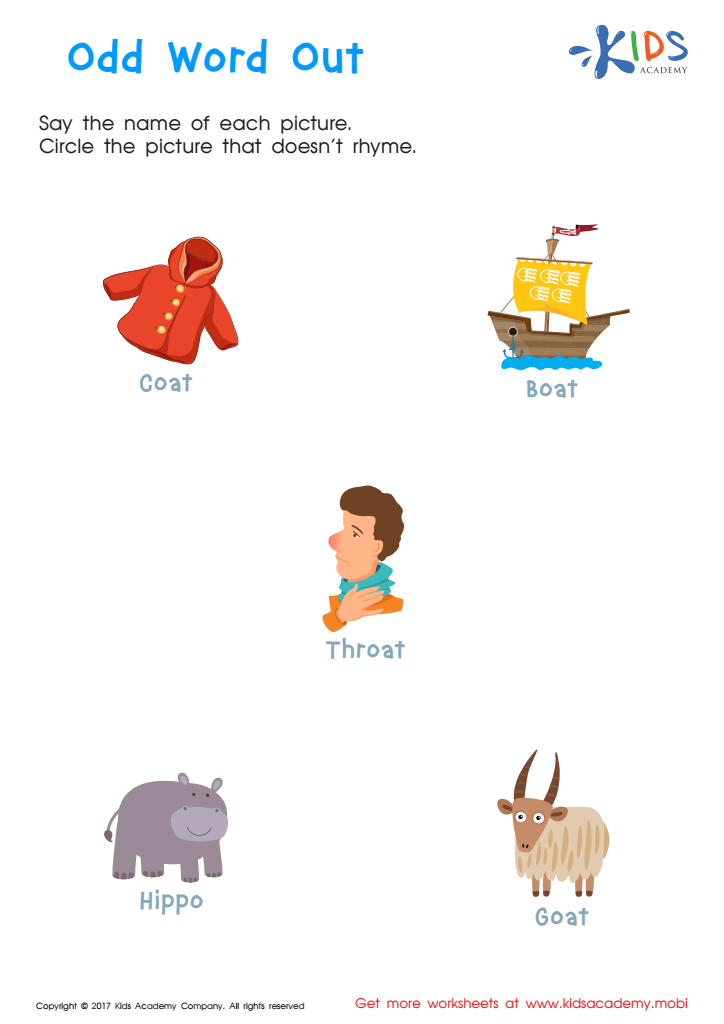

Odd Word Out Rhyming Worksheet
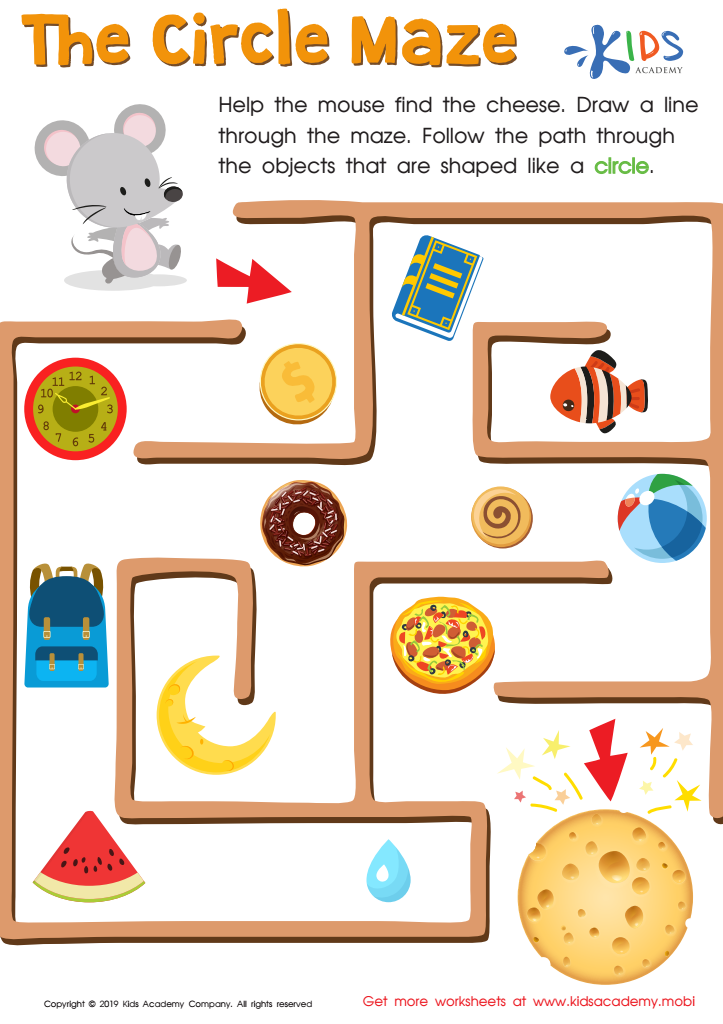

The Circle Maze Worksheet
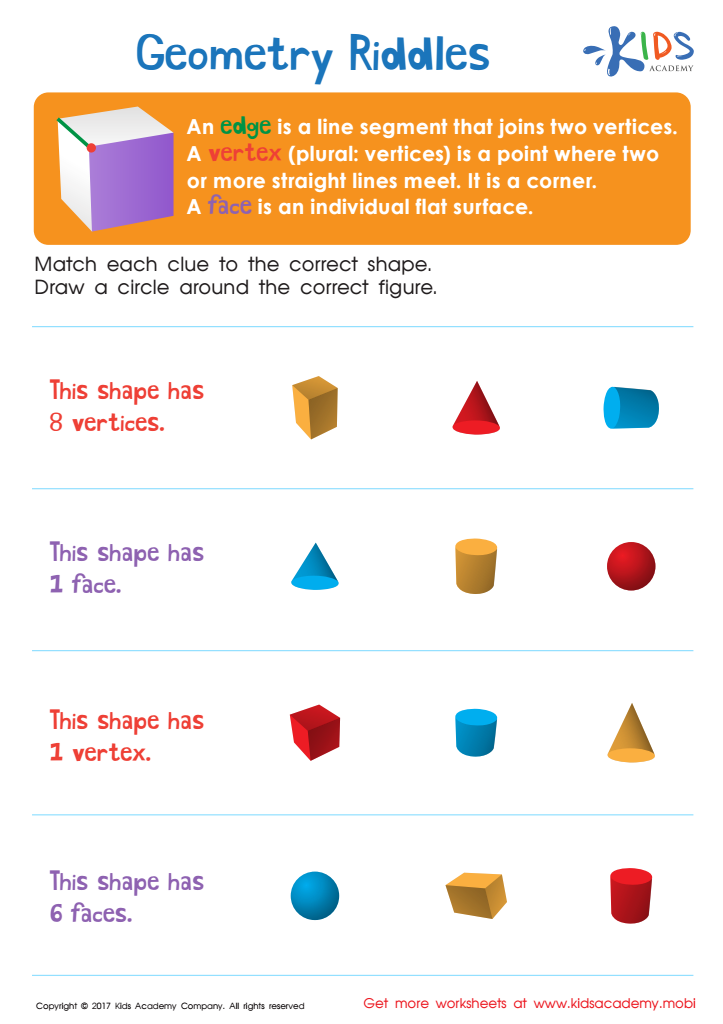

Geometry Riddles Printable
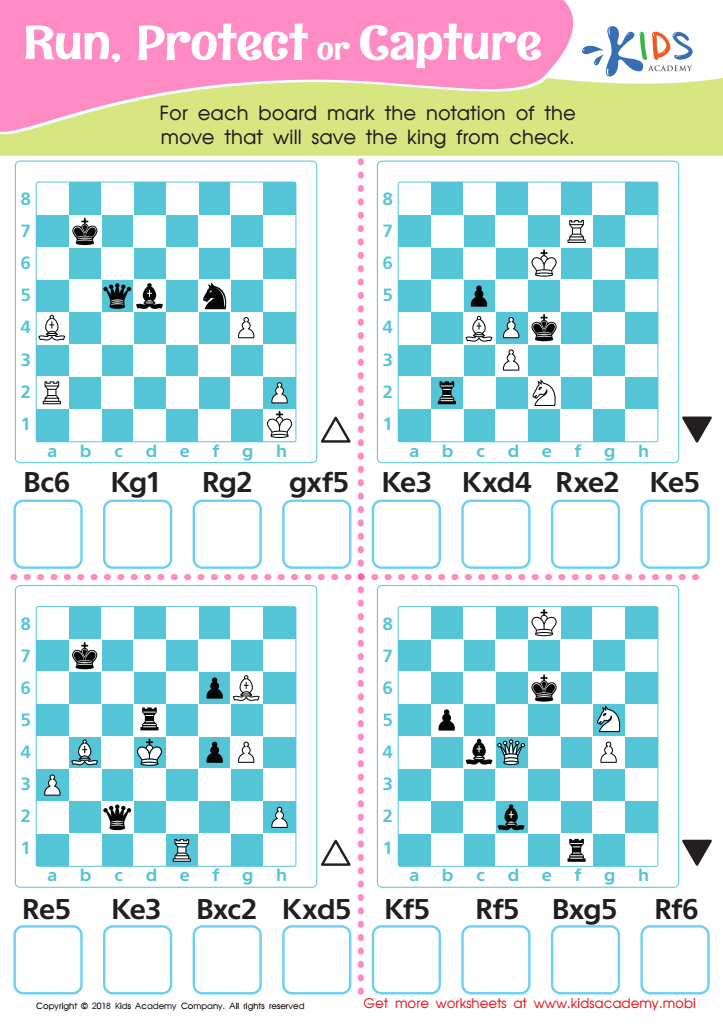

Run, Protect or Capture Worksheet
Logical reasoning is a crucial skill that develops critical thinking, problem-solving, and decision-making abilities in children. For 8-year-olds, engaging in extra challenges enhances cognitive capabilities and encourages a deeper understanding of concepts. Parents and teachers should prioritize activities that foster logical reasoning as it lays the foundation for future academic success and everyday life skills.
These challenges promote a child's ability to analyze information, draw conclusions, and recognize patterns—skills essential for subjects like math and science. Additionally, logical reasoning helps children develop resilience; facing complex tasks encourages perseverance and creativity in finding solutions.
Furthermore, participating in logical reasoning exercises can boost a child's confidence, as mastering such challenges enhances their belief in their problem-solving abilities. It also encourages collaborative work, as many logical puzzles enhance communication and teamwork skills.
Lastly, these activities offer a fun and engaging way to learn, making education enjoyable and preventing the potential disengagement that may occur at this age. Investing in logical reasoning education helps prepare children not just for academic achievements but also for effective reasoning in their adult lives. By prioritizing these challenges, parents and teachers contribute significantly to a child's intellectual and social development.
 Assign to My Students
Assign to My Students







